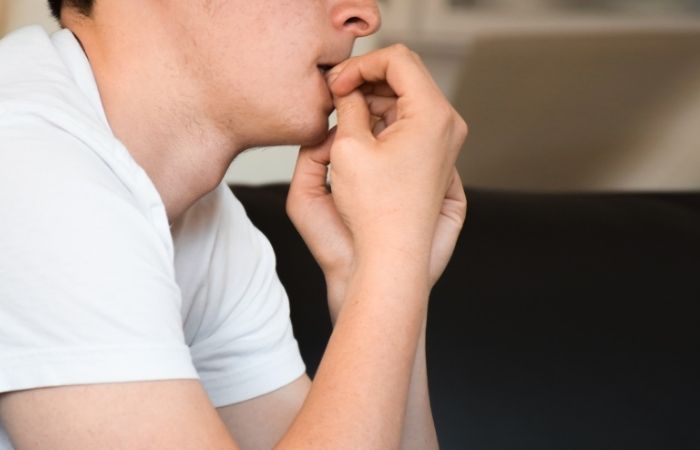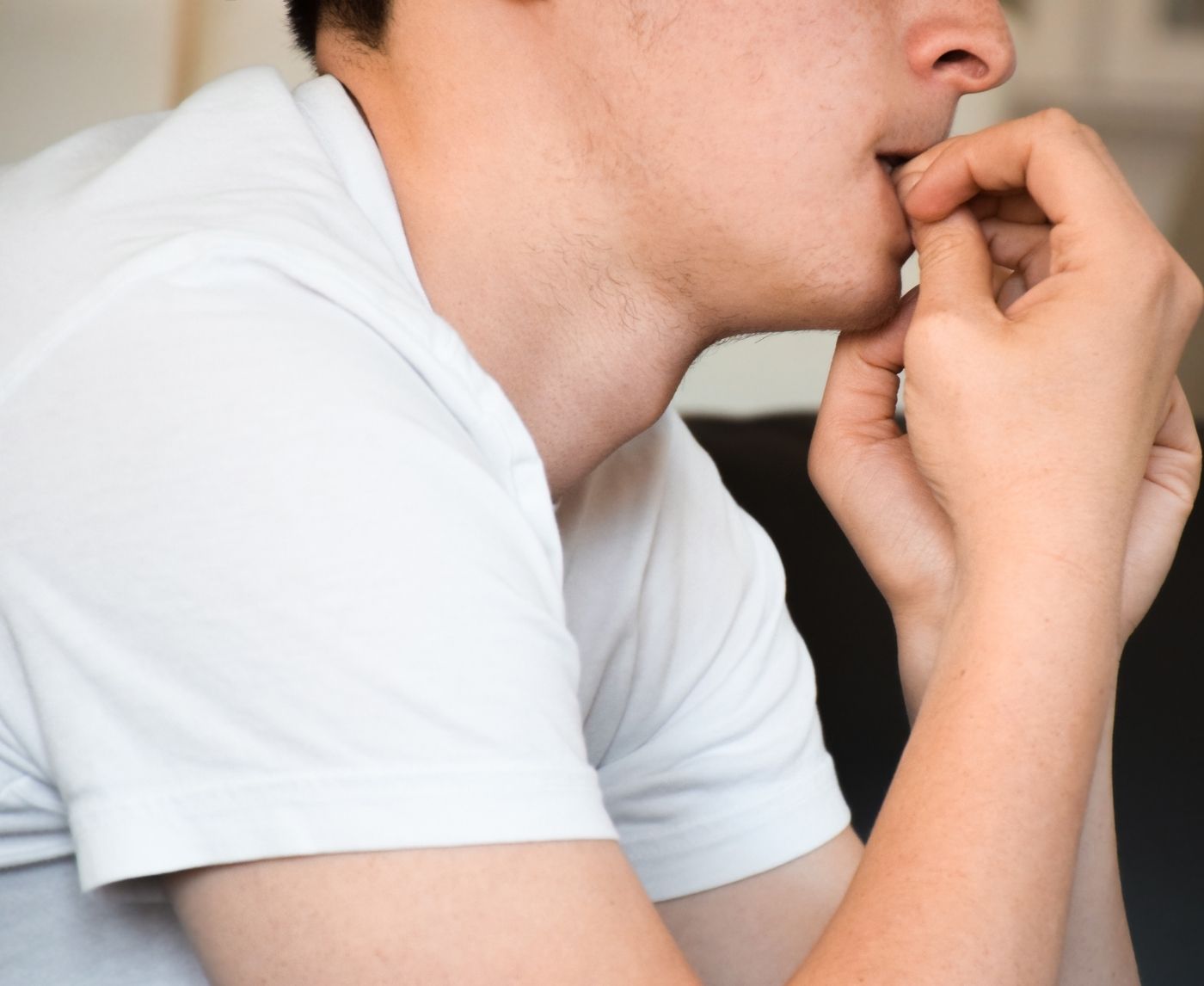Waiting for STD Results? Here’s What to Do About Sex
Why the Wait Feels Like a Punishment
The moment you submit a sample, whether it's blood, urine, or a cheek swab, your body may stay still, but your mind goes into overdrive. There’s no immediate relief. Just a ticking clock and a brain full of worst-case scenarios. This period is especially brutal because you’re dealing with both uncertainty and fear. You don’t know the results yet, and that vacuum gets filled with spiraling thoughts.
What makes the waiting period so uniquely stressful is that it combines medical uncertainty with personal shame, sexual anxiety, and the potential for life-altering consequences. Unlike other medical tests, STD results feel deeply personal. Many people describe the waiting period as worse than the diagnosis itself, because in that moment, your imagination becomes your enemy.
According to the CDC, some tests like rapid HIV tests can deliver results in minutes, while others (like syphilis or herpes) might take up to a week or more. But mental time doesn’t move like real time. A five-day wait can feel like a month if you’re running worst-case scenarios through your head on a loop.

People are also looking for: How often should I get tested in an FWB relationship?
The Psychological Whiplash of Getting Tested
Before the test, there’s usually fear. During the test, there’s a fleeting sense of control. But once it’s done? The crash comes. This is the part nobody talks about: the emotional fallout of doing the responsible thing. You're proud of yourself for getting tested, but then you're punished by the wait. That’s the mind-game twist.
Many people report insomnia, appetite loss, obsessive Googling, replaying past sexual encounters in vivid detail, or suddenly noticing every bump, itch, or ache. Some even experience psychosomatic symptoms, feeling “sick” from the stress alone. One study in the *Journal of Health Psychology* found that even people who tested negative for HIV reported symptoms of anxiety and depression just from the waiting period.
Getting tested can trigger a rollercoaster of emotions, hope, guilt, shame, panic, resolve, sometimes all in one day. This isn’t a sign you’re “crazy.” It’s a normal reaction to a deeply stigmatized topic.
How Fear Warps Time and Memory
It’s not just that the wait is long, it’s that your brain stretches it. Time slows when you’re in a state of dread. Every hour feels like a day. Meanwhile, your memory gets filtered through fear. You start obsessing over every detail of past encounters: Did he take the condom off? Was that sore new or old? Did she say she’d been tested, or that she meant to?
This isn't about paranoia, it’s about your brain trying to make sense of the unknown. According to psychologists, the brain hates uncertainty more than bad news. So in the absence of answers, it fills the gap with catastrophic interpretations. That’s why you can suddenly “remember” symptoms you didn’t have before or doubt conversations that felt clear at the time.
And for people with a history of trauma, abandonment, or betrayal, the emotional weight of waiting can hit even harder. It taps into deep wells of shame and fear. Waiting for an STD result becomes more than just waiting, it's reliving everything you’ve ever feared about being unworthy, dirty, or unlovable.
Check Your STD Status in Minutes
Test at Home with Remedium7-in-1 STD Test Kit

 For Men & Women
For Men & Women Results in Minutes
Results in Minutes No Lab Needed
No Lab Needed Private & Discreet
Private & DiscreetOrder Now $129.00 $343.00
For all 7 tests
The Social Side of Silence: Who Do You Tell?
For many people, the waiting period is also isolating. Do you tell your partner? Your friends? Your roommate? What if you’re freaking out inside, but trying to act normal at work or school? The emotional labor of pretending you're okay while secretly unraveling is exhausting.
This is where stigma does real damage. Because STDs are so wrapped up in shame and secrecy, most people suffer the wait alone. But the silence feeds the fear. Without anyone to normalize the anxiety or challenge your worst thoughts, it’s easy to spiral.
Some people find relief in anonymous forums or Reddit threads, others turn to partners or trusted friends. And increasingly, people are choosing at-home STD test kits to skip the clinic altogether and cut down the wait. These kits offer faster turnarounds and less emotional overhead than traditional testing routes.
Whichever route you take, the key is this: You deserve emotional support while waiting. The test isn’t just about your body, it’s about your mind, too.
Why Fast Results Aren’t Just Convenient, They’re Protective
The push for faster STD results isn’t just about convenience, it’s a mental health necessity. Long waits can increase anxiety, delay treatment, and discourage future testing. The emotional weight alone can cause people to avoid getting tested again. That’s a public health problem wrapped in a personal nightmare.
According to a 2023 study published in the *Journal of Adolescent Health*, people were significantly more likely to follow up with partners and complete treatment when test results were delivered within 48 hours. The quicker the feedback, the less emotional fallout and the more likely people were to make rational, healthy decisions, not panic-fueled ones.
That’s where STD Rapid Test Kits come in. These at-home kits are designed for speed, privacy, and control. No waiting rooms. No awkward eye contact. And often, results within 1–3 days, quicker than most clinics. The psychological relief of testing on your terms cannot be overstated.
The Hormonal Connection: Why Your Body Feels Off
One often-overlooked aspect of the waiting period is how stress hormones like cortisol hijack your system. High anxiety leads to elevated cortisol levels, which can affect your sleep, appetite, digestion, and even immune response. That’s why you might get headaches, feel nauseous, or catch a cold while waiting for results, it’s not an STD; it’s your stress showing up physically.
Some people even misread these stress responses as symptoms of an STD. “I kept checking my tongue for sores, convinced it was herpes,” said Marisol, a 23-year-old college student. “It turned out I was just grinding my teeth from anxiety.”
Understanding this body-mind connection is crucial. You’re not imagining things. Your body really is reacting to stress, but that doesn’t mean you’re infected.

People are also looking for: Can syphilis make you go insane?
Case Study: “I Couldn’t Sleep for 5 Nights Straight”
Let’s call him Aaron. He’s 29, single, and recently hooked up with someone he met on a dating app. They used protection, but a few days later, he noticed a red spot on his inner thigh. Cue the panic spiral.
“I booked an appointment the next day,” Aaron shared. “The nurse said I probably had nothing to worry about, but when I asked how long results would take, she said five business days. I didn’t sleep for five nights straight.”
During that time, Aaron stopped eating normally, Googled himself into oblivion, and convinced himself he had herpes. When the results came back, negative across the board, he cried in the car. Not out of relief, but exhaustion.
“It was the most emotionally draining experience I’ve had in years,” he said. “I did the right thing by getting tested. But I wasn’t prepared for the emotional hangover.”
Stories like Aaron’s aren’t rare. They’re normal, and preventable with more compassionate, faster testing solutions.
The Link Between STD Anxiety and Avoidance Behavior
Ironically, fear of bad results often keeps people from getting tested at all. “What if I have something?” becomes “If I don’t know, I can’t be scared.” This logic may offer temporary emotional protection, but it sets the stage for undiagnosed infections, increased transmission, and delayed treatment.
According to the World Health Organization, an estimated 1 in 2 people with STDs globally don’t know they’re infected. A big part of that? Testing avoidance fueled by fear, shame, and anxiety around results. The emotional cost of waiting becomes so high, people decide not to risk it.
We have to change that narrative. Testing should feel like self-care, not punishment. That starts with faster, easier, less emotionally brutal ways to get answers, and mental health support while people wait.
Reframing the Wait: From Purgatory to Pause
One of the most powerful things you can do while waiting is to reframe it. This isn’t just dead time, it’s a window for reflection, support, and action. You don’t have to just sit there and stew. You can prepare. You can plan. You can take care of yourself in ways that don’t require knowing the outcome yet.
Think of it like the “pause” before a big moment, not a punishment. This mindset shift won’t erase your anxiety, but it can soften it. Maybe it’s journaling. Maybe it’s talking to a friend. Maybe it’s deciding in advance how you’ll handle the results, good or bad. You get to own this part of the process, too.
Some people even use this time to schedule therapy, get educated, or explore resources like STD Rapid Test Kits that can speed up future testing and minimize future emotional fallout.
Check Your STD Status in Minutes
Test at Home with Remedium7-in-1 STD Test Kit

 For Men & Women
For Men & Women Results in Minutes
Results in Minutes No Lab Needed
No Lab Needed Private & Discreet
Private & DiscreetOrder Now $129.00 $343.00
For all 7 tests
How to Support a Friend Who’s Waiting
Not everyone reading this is in the waiting period themselves, some are watching someone else go through it. If that’s you, here’s the rule: Don’t minimize it. Don’t say, “You’re probably fine.” That only increases the silence and shame.
Instead, ask: “Do you want to talk about it?” Validate their feelings. Offer distractions. Share your own stories if you have them. Normalize testing and waiting as part of a responsible, sexually active life.
You don’t need to be a therapist. You just need to be a nonjudgmental presence. That alone can make the wait less terrifying.
Let’s Talk About Men and the Waiting Period
Men, especially cisgender heterosexual men, are often left out of conversations about sexual health anxiety. But they suffer too. In fact, many men report delaying testing out of fear, then spiraling once they finally take the plunge.
Because emotional expression isn’t always encouraged among men, their stress may show up as irritability, overcompensating at work, or shutting down emotionally. This silence can be deadly, literally and figuratively.
One man, Caleb, shared: “I didn’t tell anyone I got tested. I acted normal. But every night I had heart palpitations. I thought I was having panic attacks. The test was negative, but the toll was real.”
We need to normalize the emotional side of sexual responsibility for *everyone*, not just women or queer folks. Because the wait doesn’t discriminate, and neither should our support.
What Comes After the Results
Here’s the good news: The moment the results come in, no matter what they are, relief often floods in. Even if it’s positive, at least you *know*. You can plan. You can treat. You can tell your partner. The unknown is over.
But don’t ignore the emotional hangover. Many people, even after a negative result, still feel drained, disoriented, or on edge. That’s normal. The nervous system doesn’t just snap back after days of stress. You may still need time to process. Be gentle with yourself.
And if the results are positive? You’re still not alone. Modern treatments for most STDs are effective, fast, and manageable. Your life isn’t over. It’s just changing. And that, too, can be survived with knowledge, care, and support.

People are also looking for: How soon after sex can I take the test?
FAQ
1. Can stress delay STD test results?
No, stress won’t delay lab processing, but it can make the wait feel longer and more intense.
2. Why do STD test results take so long?
It depends on the test type and lab. Some results (like HIV rapid tests) are same-day, while others may take 3–7 days.
3. Can I trust at-home STD test kits?
Yes. Many at-home STD test kits are FDA-approved and offer high accuracy when used correctly.
4. Is it normal to feel sick while waiting for results?
Yes, stress can cause physical symptoms like headaches, stomach issues, and fatigue during the waiting period.
5. What if I regret getting tested?
That’s a normal fear. But testing is an act of self-care and responsibility, no matter the result.
6. Can I tell my partner before getting results?
Absolutely. Some choose to share the waiting process, it can build trust and reduce shame.
7. Why am I overthinking everything I did?
Fear activates memory loops. It’s common to replay every detail while waiting. You’re not alone.
8. What if I get a false positive?
It happens. Always confirm with a follow-up test, especially for herpes, HIV, and syphilis.
9. How do I calm down while waiting?
Focus on what you can control: breathing, distractions, talking to someone, journaling, or exercise.
10. Should I avoid sex until I get my results?
Yes, it's safest to pause sexual activity until you receive and confirm your test outcomes.
Don’t Wait in the Dark
If you’re pacing, spiraling, or compulsively refreshing your inbox while waiting for your STD results, you are not alone, and you are not overreacting. The mental toll of waiting is real. It’s not just a medical limbo, it’s an emotional minefield. But it’s also temporary. No matter what the results say, you will get through this.
You deserve care, support, and answers that come with compassion, not judgment. STD testing isn’t just a physical act, it’s an emotional leap. So be gentle with yourself. Seek out tools that minimize the wait and the worry. And remind yourself: The hardest part is often not knowing. Once you do, the power is back in your hands.
Your mental health matters as much as your physical results. Don’t sit in silence. Take control of your health today.
Sources
3. Psychological Impact of Waiting for Test Results (PubMed)
4. Planned Parenthood: Getting Tested










